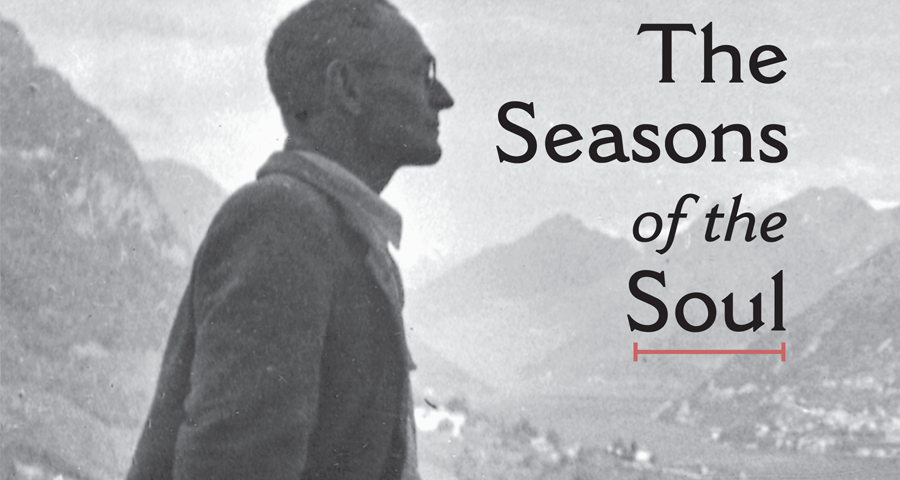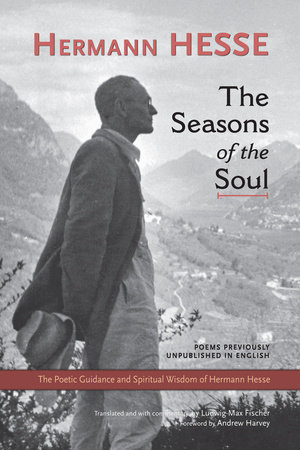
Hermann Hesse: The Lonely Wanderer
Categories: Literature & the Arts
Hermann Hesse won the 1946 Nobel Prize in Literature, authored world-changing books including Siddhartha and Steppenwolfe, which have been read by more than a hundred million people, and has had his writing translated into almost sixty languages. For many readers, Hesse’s works have been earmarked as landmark and even life-changing texts, and have become a favorite required read among high school and college instructors. With such successes in life, one might think that Hesse must have been relatively happy. But, like many true artists, Hesse came into the world as a bit of a tortured soul, suffering personal crises and social anxieties from an early age.
If he were alive today, Hesse’s life would be a fascinating story for Page Six readers. The son of missionaries, Hesse grew up with deep depression, attempting suicide at age fifteen which lead him to spend some of his formidable youth in an insane asylum. All his life, he was drawn to solitude and privacy, often feeling awkward in social situations. He got married several times but only his last marriage – with art historian Ninon Dolbin – proved to work out, when Hesse was no younger than 54. Moments of fervent passion alternated with periods of unbearable loneliness throughout his relationships, and his life was constantly undergoing abrupt changes and great instability. Though his writing was well-liked and widely read, the author often suffered financial problems, which gave no aid to his already severe depression.
As a creative though, Hesse carried an indefatigable vision, finding solace in his poetry (and a few Jungian therapists). He saw the writing process as a quest for truth and insight, a way to overcome life’s difficulties by gaining a more holistic understanding of our existence. Nature, represented by the garden, the forest, and animals, was his first and foremost teacher. Whenever he could, he escaped city life and retired into nature; walks in the woods, as well as avid gardening, were part of his daily schedule. It is no surprise then that nature, especially the contemplation of his garden, inspired many of his most intimate poems. The increasing alienation from nature which characterized the industrialized twentieth century profoundly worried and upset him.
In spite of all the hardships Hesse had to put up with throughout his life, he never ceased to appreciate the challenges of each phase of existence. Living to the ripe age of 85, he relentlessly praised the wisdom provided by the treasures of experience. As a traveler to foreign and exotic countries, but also a wanderer and seeker in the deepest realms of our soul, he liked to compare life itself to a journey, a spiritual search for happiness beyond worldly concerns.
One of my favorite poems, first published in English in The Seasons of the Soul, translated and commented by Ludwig Max Fischer, reflects exactly that quest:
Happiness
As long as you chase happiness,
you are not ready to be happy,
even if you owned everything.
As long as you lament a loss,
run after prizes in restless races,
you have not yet known peace.
But when you have moved beyond desire,
become a stranger to your goals and longings
and call no longer on happiness by name,
then your heart rises calmly
above the ebb and flow of action
and peace has reached your soul.
The Seasons of the Soul: The Poetic Guidance and Spiritual Wisdom of Herman Hesse
Translated by Ludwig Max Fischer, Ph.D., Foreword by Andrew Harvey
Vowing at an early age “to be a poet or nothing at all,” Hermann Hesse rebelled against formal education, focusing on a rigorous program of independent study that included literature, philosophy, art, and history. One result of these efforts was a series of novels that became counterculture bibles that remain widely influential today. Another was a body of evocative spiritual poetry. Published for the first time in English, these vivid, probing short works reflect deeply on the challenges of life and provide a spiritual solace that transcends specific denominational hymns, prayers, and rituals.
The Seasons of the Soul offers valuable guidance in poetic form for those longing for a more meaningful life, seeking a sense of homecoming in nature, in each stage of life, in a renewed relationship with the divine. Extensive quotations from his prose introduce each theme addressed in the book: love, imagination, nature, the divine, and the passage of time. A foreword by Andrew Harvey reintroduces us to a figure about whom some may have believed everything had already been said. Thoughtful commentary throughout from translator Ludwig Max Fischer helps readers understand the poems within the context of Hesse’s life.
Tags: Poetry Hermann Hesse




